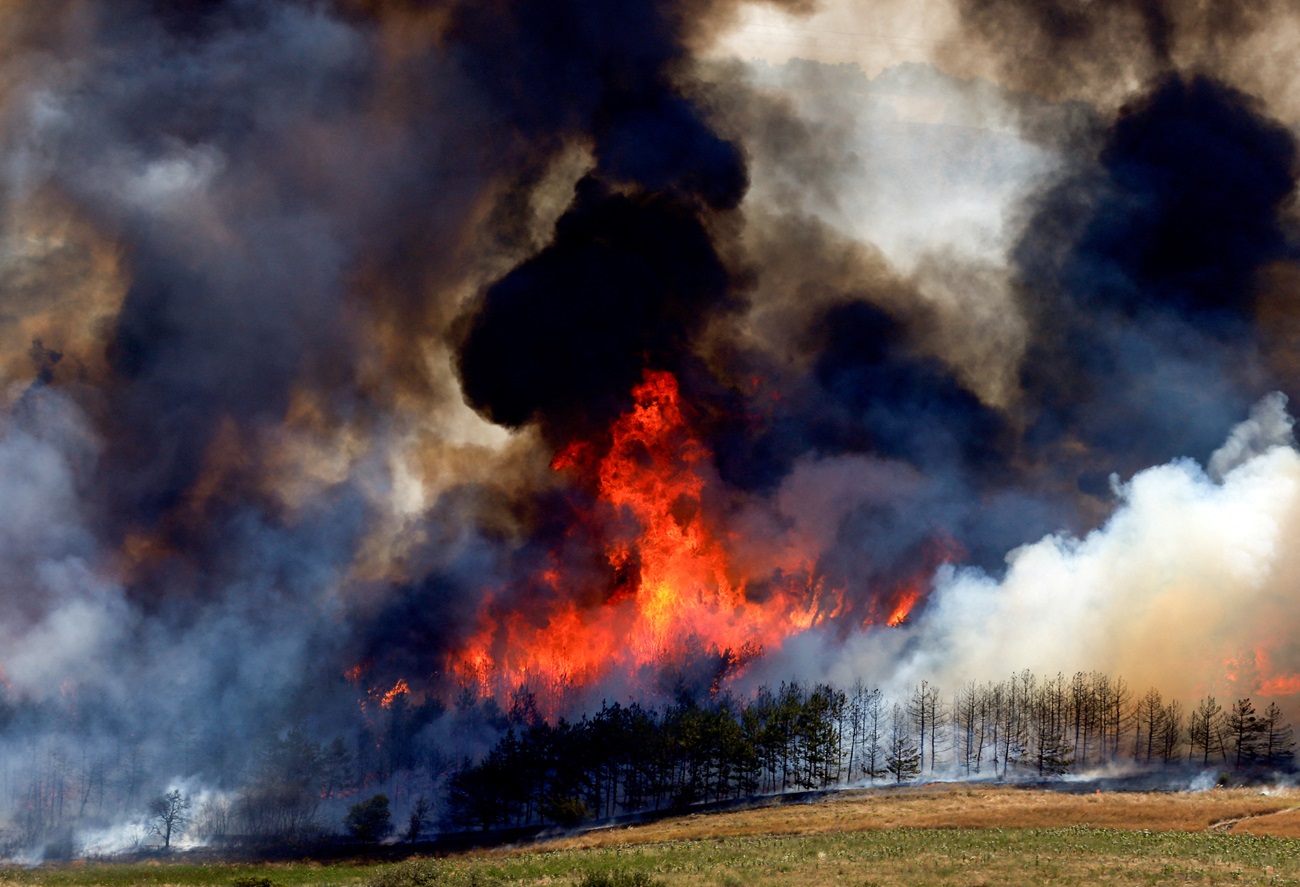
The region has seen above-average temperatures and dry conditions over the past month that have created ideal conditions for wildfires, scientists say.
Flames engulfed pine trees surrounding a hotel complex in the Albanian coastal town of Shengjin, where authorities evacuated residents.
In North Macedonia, a blaze near the Greek border burned five houses and led to evacuations, local officials said.
Residents told local media that electricity and phone services were cut. A fire further north on Monday (local time) burned dozens more buildings and killed one man, authorities said.
"We have many fires. Thousands of hectares have caught fire. Half of the country is in flames," Goran Stojanovski, an official from North Macedonia's crisis management department, told Reuters, saying strong winds were hampering firefighters.
In Croatia, a fire burned about 450 hectares of pine forest around the Adriatic coastal town of Sibenik, a local fire official said by phone.
In Bulgaria, firefighters had to stop fighting a wildfire in the Slavyanka mountains near the Greek border after landmines dating back to the Cold War era began exploding, local media Nova TV said.
Meanwhile, more than 200 firefighters backed by helicopters and water-carrying planes managed to contain a wildfire on Greece's second biggest island, Evia, after authorities ordered the evacuation of two villages, the fire brigade said.
Prime Minister Kyriakos Mitsotakis said Greece had been dealing with "a very difficult summer" in terms of climate conditions.
"We still have a very difficult month, August, ahead of us and obviously we all need to be on high alert," he told a cabinet meeting.
Wildfires in Greece have become more frequent in recent years during increasingly hot, dry summers that scientists link to climate change. Last year, more than 8000 blazes broke out, fire brigade data shows.
Since May, hundreds of wildfires have burned across the country, which recorded the hottest June on record and its longest heatwave.












